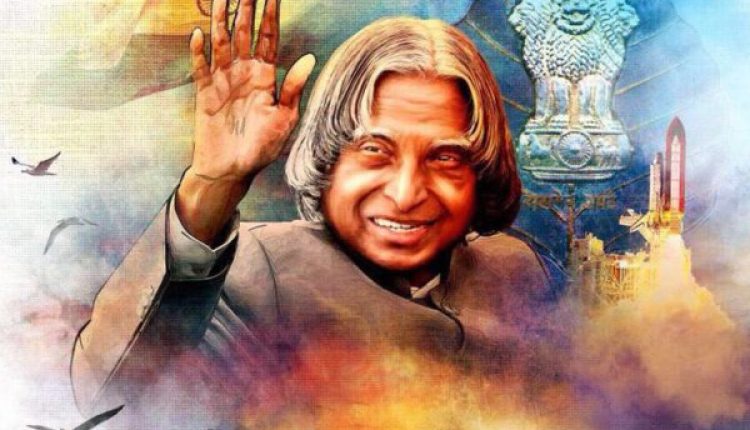In the heart of India’s modern scientific and spiritual legacy stands one humble man who captured the soul of a billion people — Dr. A.P.J. Abdul Kalam. Known as the “Missile Man of India”, he was more than a scientist. He was a visionary, a teacher, a leader, and most importantly, a symbol of hope and inspiration.
Let’s revisit the remarkable life of a man who dreamed for India and taught generations to believe in themselves.
Humble Beginnings in Rameswaram
Born on 15 October 1931 in the temple town of Rameswaram, Tamil Nadu, Abdul Kalam grew up in a modest household. His father, Jainulabdeen, was a boat owner and imam, while his mother Ashiamma took care of the family.
-
Despite financial hardships, young Kalam was bright, hardworking, and deeply curious.
-
His early fascination with flying machines laid the foundation for a career in aerospace.
The Making of a Scientist
-
Studied physics at St. Joseph’s College, Tiruchirappalli
-
Pursued aerospace engineering at Madras Institute of Technology (MIT)
-
Dreamed of becoming a fighter pilot but narrowly missed a place in the Indian Air Force — a setback that pushed him towards scientific excellence instead
Rocketing Into India’s Space & Defense Programs
ISRO and SLV-III
In 1969, Dr. Kalam joined ISRO, where he led the development of India’s first Satellite Launch Vehicle (SLV-III), which successfully launched the Rohini satellite in 1980. It was a landmark moment that placed India on the global space map.
IGMDP and the Birth of the Missile Man
Kalam was the architect of India’s Integrated Guided Missile Development Programme (IGMDP). Under his leadership, India developed a range of indigenous missiles:
-
Agni – Intermediate-range ballistic missile
-
Prithvi – Tactical surface-to-surface missile
These technological marvels earned him the title: Missile Man of India.
Pokhran-II: A Nuclear Milestone
In 1998, Dr. Kalam played a pivotal role in India’s second nuclear tests at Pokhran. These tests marked a defining moment in India’s defense capabilities and earned global attention — while enhancing national pride.
The 11th President of India (2002–2007)
Elected with overwhelming public and parliamentary support, Dr. Kalam became India’s 11th President.
-
Known affectionately as the People’s President
-
Maintained a non-partisan approach and remained accessible to the common man
-
Inspired millions of youth through speeches, lectures, and writings
A Visionary Author and Dreamer
Dr. Kalam was also a prolific author and philosopher. His books have shaped the mindset of students, teachers, and leaders alike.
His iconic works include:
-
Wings of Fire (Autobiography)
-
Ignited Minds
-
India 2020
-
My Journey
-
Turning Points
He envisioned an India that was self-reliant, tech-forward, and socially uplifted — a nation of thinkers, innovators, and leaders.
Simplicity, Spirituality, and Values
Though a man of science, Dr. Kalam was deeply spiritual and ethical.
-
Respected all religions and believed in unity through diversity
-
Lived simply, never married, and donated most of his earnings
-
Practiced meditation, prayer, and followed Bhagavad Gita and Quran alike
A Hero’s Farewell
On 27 July 2015, while delivering a lecture at IIM Shillong, Dr. Kalam collapsed and passed away due to cardiac arrest. He died doing what he loved most — inspiring young minds.
His death brought the entire nation to tears, but his legacy continues to ignite hearts.
Awards and Recognition
-
Bharat Ratna (India’s highest civilian honor)
-
Padma Vibhushan
-
Padma Bhushan
-
More than 40 honorary doctorates
-
Numerous roads, schools, and even a research satellite named in his honor
Quotes That Still Resonate
“You have to dream before your dreams can come true.”
“If you want to shine like a sun, first burn like a sun.”
“Excellence happens not by accident. It is a process.”
Legacy Beyond Borders
Dr. Kalam is remembered across the world — not only for his contributions to science and technology but for his humanity, humility, and hope.
He empowered generations to think big, act bold, and stay grounded — a rare blend of intellect and integrity.
Did You Know?
-
Kalam read both the Bhagavad Gita and Quran regularly
-
He used to write poems in Tamil and was a trained veena player
-
His birthday, October 15, is observed as World Students’ Day in his honor
In Conclusion
Dr. A.P.J. Abdul Kalam’s life is a beacon of inspiration. From the shores of Rameswaram to the skies of India’s defense and space programs, he proved that with vision, perseverance, and humility, one can shape the destiny of a nation.
He didn’t just live a life — he lived a message.


Comments are closed.